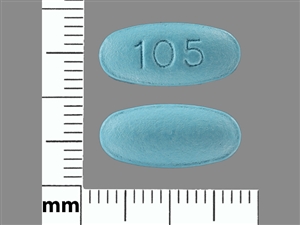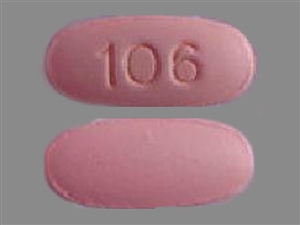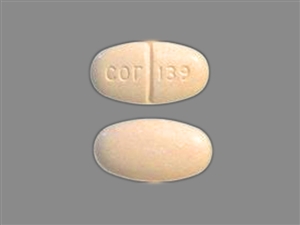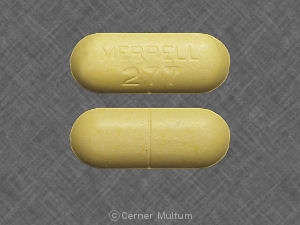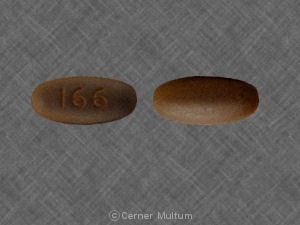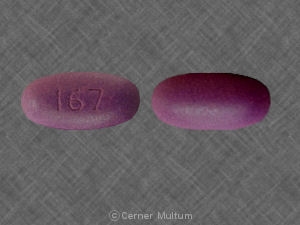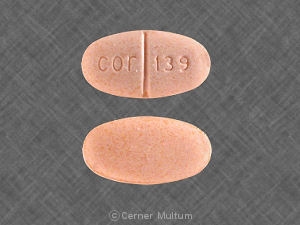What is the most important information I should know about methenamine?
You should not use methenamine if you have kidney disease, severe liver disease, if you also take a sulfa drug, or if you are dehydrated.
What is methenamine?
Methenamine is an antibiotic that is used to prevent recurring bladder infections from coming back. Methenamine is used in adults and children at least 6 years old.
Methenamine is usually given after other antibiotics have been given to treat the initial infection.
Methenamine may also be used for purposes not listed in this medication guide.
What should I discuss with my healthcare provider before taking methenamine?
You should not use methenamine if you are allergic to it, or if you have:
- kidney disease;
- severe liver disease;
- if you also take a sulfa drug; or
- if you are dehydrated.
Tell your doctor if you have ever had:
- liver disease;
- asthma;
- an allergy to aspirin; or
- an allergy to yellow food dye.
Methenamine may harm an unborn baby when taken during early pregnancy. It is not known whether this medicine will harm an unborn baby when taken during the last 3 months of pregnancy. Tell your doctor if you are pregnant or plan to become pregnant.
Tell your doctor if you are breastfeeding.
How should I take methenamine?
Follow all directions on your prescription label and read all medication guides or instruction sheets. Use the medicine exactly as directed.
Taking more methenamine than prescribed will not make it more effective, and may cause unwanted side effects (such as bladder irritation, pain, increased urination, and blood in the urine).
You may need to break a tablet in half when giving this medicine to a child.
Drink plenty of liquids while you are taking methenamine. To make your urine more acidic, your doctor may recommend you drink certain types of liquid (such as cranberry juice) or taking other medicines. Your doctor may also recommend increasing protein in your diet, but avoiding milk or other dairy products. Follow your doctor's instructions very closely.
Use this medicine for the full prescribed length of time, even if your symptoms quickly improve. Skipping doses can increase your risk of infection that is resistant to medication. Methenamine will not treat a viral infection such as the flu or a common cold.
You may need frequent urine tests to determine that an infection has cleared. You may also need blood tests to check your liver function.
Methenamine can affect the results of certain medical tests, especially if you are pregnant while taking this medicine. Tell any doctor who treats you that you are using methenamine.
Store at room temperature away from moisture, heat, and light. Keep the bottle tightly closed when not in use.
Do not share this medicine with another person, even if they have the same symptoms you have.
What happens if I miss a dose?
Take the medicine as soon as you can, but skip the missed dose if it is almost time for your next dose. Do not take two doses at one time.
What happens if I overdose?
Seek emergency medical attention or call the Poison Help line at 1-800-222-1222.
What should I avoid while taking methenamine?
You may need to follow a special diet while using methenamine. Follow all instructions of your doctor or dietitian. Learn about the foods to eat or avoid to help control your condition.
What are the possible side effects of methenamine?
Get emergency medical help if you have signs of an allergic reaction: hives; difficult breathing; swelling of your face, lips, tongue, or throat.
Call your doctor at once if you have:
- painful urination;
- increased urination;
- blood in the urine; or
- any new or worsening symptom.
Common side effects may include:
- painful or difficult urination;
- upset stomach, nausea; or
- rash.
This is not a complete list of side effects and others may occur. Call your doctor for medical advice about side effects. You may report side effects to FDA at 1-800-FDA-1088.
What other drugs will affect methenamine?
Other drugs may affect methenamine, including prescription and over-the-counter medicines, vitamins, and herbal products. Tell your doctor about all your current medicines and any medicine you start or stop using.
Where can I get more information?
Your pharmacist can provide more information about methenamine.
Remember, keep this and all other medicines out of the reach of children, never share your medicines with others, and use this medication only for the indication prescribed.
Every effort has been made to ensure that the information provided by Cerner Multum, Inc. ('Multum') is accurate, up-to-date, and complete, but no guarantee is made to that effect. Drug information contained herein may be time sensitive. Multum information has been compiled for use by healthcare practitioners and consumers in the United States and therefore Multum does not warrant that uses outside of the United States are appropriate, unless specifically indicated otherwise. Multum's drug information does not endorse drugs, diagnose patients or recommend therapy. Multum's drug information is an informational resource designed to assist licensed healthcare practitioners in caring for their patients and/or to serve consumers viewing this service as a supplement to, and not a substitute for, the expertise, skill, knowledge and judgment of healthcare practitioners. The absence of a warning for a given drug or drug combination in no way should be construed to indicate that the drug or drug combination is safe, effective or appropriate for any given patient. Multum does not assume any responsibility for any aspect of healthcare administered with the aid of information Multum provides. The information contained herein is not intended to cover all possible uses, directions, precautions, warnings, drug interactions, allergic reactions, or adverse effects. If you have questions about the drugs you are taking, check with your doctor, nurse or pharmacist.
Copyright 1996-2020 Cerner Multum, Inc. Version: 4.01. Revision date: 6/10/2019.
